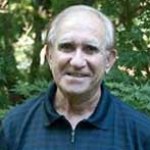Brain and Behavior
The very first red flag that something was very, very wrong with the 'XMRV=CFS' paper went up before the actual paper was published.
On the woo-rag Huffington Post, the anti-vaxer David Kirby posted a very, very odd comment from the lead researcher on the paper, Judy Mikovits:
And then Dr. Mikovits dropped a bombshell that is sure to spark controversy.
"On that note, if I might speculate a little bit," she said, "This might even explain why vaccines would lead to autism in some children, because these viruses live and divide and grow in lymphocytes -- the immune response cells, the B and the…
David Barash has a short, but interesting post about consciousness. Responding to someone who asked him about the most difficult unsolved problem in science, Barash writes:
I answered without hesitation: How the brain generates awareness, thought, perceptions, emotions, and so forth, what philosophers call "the hard problem of consciousness."
It's a hard one indeed, so hard that despite an immense amount of research attention devoted to neurobiology, and despite great advances in our knowledge, I don't believe we are significantly closer to bridging the gap between that which is physical,…
A man "lies crumpled on the sand ... Behind him a dark trail leads back to the spot from which he has just been dragged. Looking closer, we notice something slightly odd about the figure crouching over the wounded man. His posture does not suggest a doctor attempting to staunch bleeding, or even to check heartbeat or pulse. Look a little closer still, and you may be inclined suddenly to reel back or to close your eyes. The man sprawled at such an odd angle beside the injured [man] has his face pressed against a gaping tear in [his] throat. He is drinking blood fresh from the wound..."…
I am always amazed by stories of people who hoard animals and find myself mesmerized by the TV series dedicated to this important animal welfare issue. The animals found in these situations are often very ill due to squalid living conditions and lack of adequate food or water.
What I want to focus on, however, is another type of hoarding...food. Probably the best known example are squirrels like the Tamiasciurus hudsonicus, i.e. red squirrel, shown below which hoard food in preparation for the long winter fast:
Photograph: Steve Geer/iStockphoto.com.
Photo Credit: EcoRover
People and…
By Kim Krisberg
Just a few days ago, an event in the small town of Lilburn, Georgia, may have saved the life of someone living half a world away. It wasn't a black-tie gala or a celebrity telethon. It wasn't even about a disease that most of us here in the United States think much about. In fact, it was as easy as doing what us animal lovers would do anyway: vaccinating our beloved Fido or Whiskers against rabies.
In honor of World Rabies Day, which takes place Sept. 28, Lilburn's Banfield Pet Hospital held a rabies vaccination clinic, half of the proceeds from which were donated to the…
... that probably ruins the whole thing. I have not yet read The Better Angels of Our Nature: Why Violence Has Declined, so I could be wrong, but if you have a copy check it out and tell me if I've got it right.
Breifly, the book says: " it's a meticulously documented argument about how much violence has declined from our hunter-gatherer days ten millennia ago through medieval times to the modern day. " [from WEIT Website]
Here's the thing. The data Pinker (and others) have been using over the last few years for "hunter-gatherers" includes mostly, or at least in large number, groups that…
So, the other day, I was trying to find some links to podcasts that I'd done to put on my media page, so I did something that I would never otherwise had thought to do; I entered my own name in the search box at Apple's iTunes store. Everybody has entered their own name in the Google Search box, right? But who thinks of searching for themselves on iTunes unless you are a musician.
Or, looking for your podcasts. Which I found, by the way, so that was good. But there was also a thing called The Ballad of Greg Laden.
So my brain started ticking away and it pretty much figured out that…
In his prolific career of more than 30 years as an author of science books for children, Seymour Simon has penned more than 250 children's books, taking young readers on exciting, unforgettable journeys across the breadth of the scientific landscape -- from exploring outer space, its planets, earthquakes and super storms to delving into the intricate workings of the human heart and brain, the internal clocks of chrysanthemums, and the behavior and mystery of butterflies, gorillas, cats, dogs and other wonders of nature. In fact, says one book reviewer, "There is no place on, in, or around…
One of the many problems modern science poses for Christianity is the question of how to understand original sin. The traditional teaching, which holds that Adam and Eve were the only humans on the planet when they were created on day six of Creation Week, that the ground was cursed and they were expelled from Eden as a result of a specific sin they committed, and that this corrupted state was in some way passed down to all future human beings, is no longer tenable. A variety of lines of evidence make it clear that the human population has always numbered in the thousands and certainly…
A study just published in The Lancet compares the incidence rates of cancers in firefighters who worked at the World Trade Center site during and after the 9/11 attacks to the rates in firefighters not exposed to the disaster or its aftermath. Researchers from the Albert Einstein College of Medicine Montefiore Medical Center and the New York Fire Department's Bureau of Health Services found that WTC firefighters had an overall cancer incidence ratio about 10% higher than that of a general population with similar demographics and 32% higher than that of non-WTC firefighters.
Firefighters who…
One of my interests in skepticism and critical thinking has been the similarity in the fallacious arguments, approach to data, and general behavior of those who are--to put it generously--not so skeptical or scientific in their approach to life. I'm talking about believers in the paranormal, quacks, anti-vaccine activists, conspiracy theory mavens, Holocaust deniers, creationists, anthropogenic global warming denialists, and cranks of all stripes. Indeed, it is this similarity in mindset that led Mark Hoofnagle to coin the term "crank magnetism," a perfect description of how people who…
It's always frightening when lawyers delve into the realm of medicine. It's even worse when pre-law students and political science majors do the same.
Such was the thought running through my mind when I came across the most recent issue of the Yale Journal of Medicine & Law. The result is what I would most accurately characterize as--shall we say?--uneven. Even though the authors try to don the mantle of skepticism, for the most part they fail. Perhaps the best example of this failure is this particular article entitled Chiropractic Medicine: "Quackery's" Struggle for Fair Practice.…
Now this is some seriously funny stuff.
Anyone who's been reading this blog a while knows my opinion of Deepak Chopra. Basically, he's the quackiest of the quantum quacks, the godfather of quantum woo, the one woo-meister to rule them all. He did it first and did it "best" (if you can call it that), in the process garnering a devoted following of people with far more "spirituality" than understanding of science. All it took was a unrelenting abuse of quantum physics, a Lamarckian misunderstanding of evolution, combined with a bit of old-fashioned Cartesian mind-body dualism, all thrown into…
Links for you. Science:
My front yard is a battleground
Myth of the climate science gravy train: scientists studying Greenland forced to pay their own airfares
Targeting an audience of monkeys: Ad seeks to plumb roots of human behavior
The World's Only Analog Blogger
Other:
Even Peggy Noonan of Murdoch's WSJ gets it!
Matt Damon's Powerful Education Speech at the Save Our Schools Rally in DC
New Entrant for Worst. President. Ever.
Matt Stoller: What Presidency?
Between the lions
Broken Lotteries
What are people like Melanie Phillips calling for then?
Is Cash the Best Way to Help the Poor?…
Your required reading for today is Jerry Coyne's essay in the USA Today. His topic? Where morality comes from if not from God. Here's an excerpt:
So where does morality come from, if not from God? Two places: evolution and secular reasoning. Despite the notion that beasts behave bestially, scientists studying our primate relatives, such as chimpanzees, see evolutionary rudiments of morality: behaviors that look for all the world like altruism, sympathy, moral disapproval, sharing -- even notions of fairness. This is exactly what we'd expect if human morality, like many other behaviors, is…
Scum of the earth. Parts of Michele Bachmann's district contain the most smug, pious, conservative rat-buggering jerks on the planet (like Marcus Bachmann and his anti-gay "clinic", for instance). And the symptoms are beginning to show: the Anoka-Hennepin school district, part of Bachmann's domain, home of the Elmer Gantry-wannabe Bradley Dean, is also the epicenter of an epidemic of teen suicides, 9 in the last two years. These are kids who were bullied for being gay, or suspected of being gay, or not fitting in to the their inbred little community (and who would want to?), and the school…
Today's science news from the Weizmann Institute covers research in neurobiology, environmental science and cancer immunology.
⢠In the first, scientists identified a likely biological marker for autism that shows up even in very young children. Diagnoses of autism are generally not possible so early, as the signs typically appear gradually throughout the first 3-4 years of life. The scientists used fMRI to scan the brains of children aged 1-3 who were just starting to show signs of autistic behavior. Their method: scanning the brains of toddlers while they sleep. It seems that even asleep…
Picking up where we left off yesterday, most of Feser's post is devoted to a hypothetical dialogue between a scientist and a skeptic who thinks that science is all a lot of nonsense. The idea is to make Jerry Coyne's objections to theology seem silly, by showing the absurdity of comparable objections leveled at science. As I see it, however, Feser has been more successful at showing how science is different from theology. Here is the first exchange:
Skeptic: I'm trying to learn science so I can meet head-on the argument that we science critics are ignorant of the subject. So, under the…
Siblings of those diagnosed with autism are more than 20 times as likely as members of the general population to also have autism. Some of these siblings also show evidence of autism-like but less marked cognitive and social communication problems. This suggests that autism has either an environmental cause typically found in all siblings during development or childhood or a strong heritable component, but there is not a known genetic link or a well established biological marker. A biological marker other than observed behavioral deficits would be a neurological phenotype such as might be…
Ridue's Flickr photostream. This is not an endorsement for use of marijuana.
I've always known that scientists and the news media don't get along so well, but this is a bit much.
A study just published in the Proceedings of the National Academy of Sciences describes how fatty foods can increase your appetite:
UC Irvine researchers Daniele Piomelli, Nicholas DiPatrizio and colleagues found that fats in these foods make them nearly irresistible and trigger a surprising biological mechanism that likely drives our gluttonous behavior. The apparent culprit? Natural marijuana-like chemicals in…



